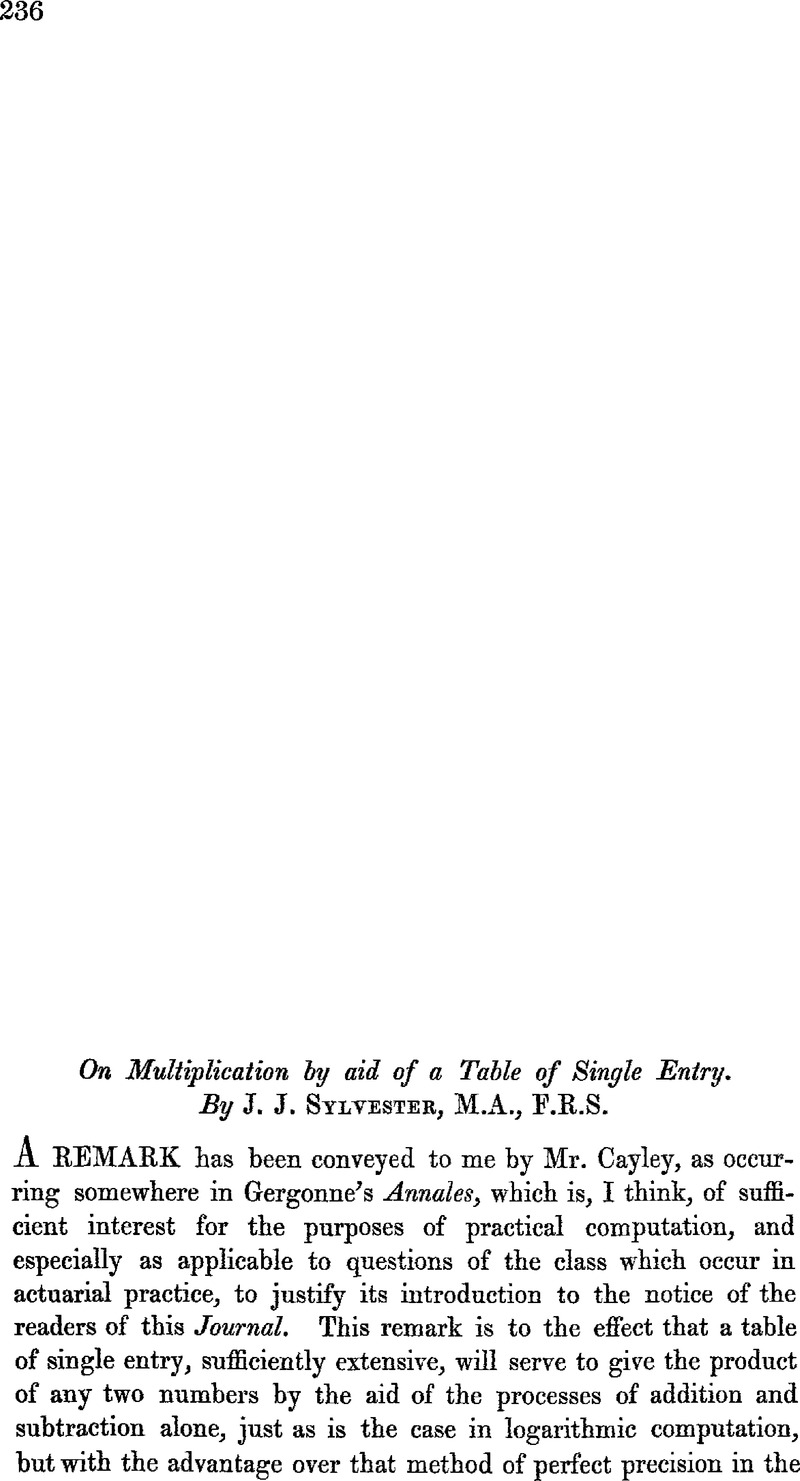No CrossRef data available.
Published online by Cambridge University Press: 18 August 2016

page 237 note * To render the process given by this formula strictly linear, the table employed should be that of the fourth parts of the squares of numbers (rejecting the fraction for the odd numbers) in place of a table of the squares themselves. A like remark will apply, subject to certain modifications as regards the fractional part, to the general case. For the product of two numbers the scheme of the operations will thus come to consist of an addition, two subtractions, and two direct findings—in lieu of the addition,two direct and one reverse findings, required in the logarithmic process.
page 238 note * For a proof of this theorem, see London and Edinburgh Philosophical Magazine, April, 1854. The total number of terms in the right-hand side of the equation is easily seen to be 2r—1